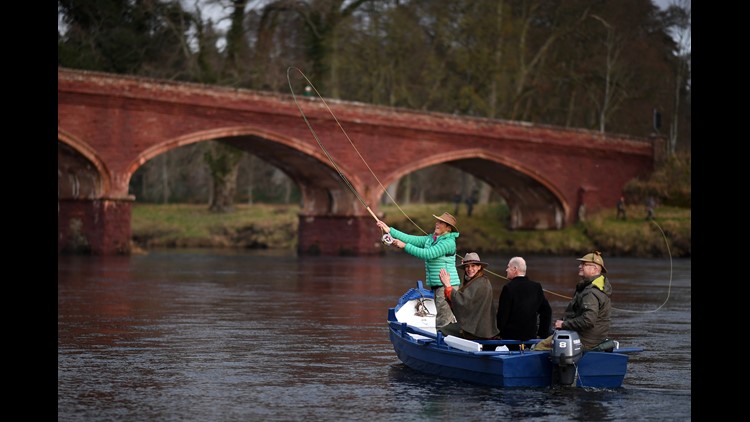Spring is certainly here — the sun is starting to stay with us and residents are taking to the water for fishing season, but even as it gets hotter outside, water temperatures remain cold.
The Department of Energy and Environmental Protection is warning Connecticut boaters of the dangers of cold water immersion and sharing important safe boating tips.
While boating and fishing are safe and enjoyable recreational activities for most, DEEP reminds residents that safe boating practices can help avoid tragic accidents.
“Between 2008 and 2017, there were 571 reportable boating accidents in the state, and 63 fatalities. Of fatalities involving a canoe or kayak, 90 percent of those boaters were not wearing a life jacket,” the department outlined in a statement.
See DEEP’s Safe Boating Tips below:
- Wear Your Life jacket! – Modern life jackets are more comfortable than ever before, and DEEP urges anyone on the water to wear one. It will make you more visible to other boaters and will keep you afloat, significantly improving your chances for survival.
- Follow the law – All persons in manually propelled vessels (canoes, kayaks, rowboats and stand up paddleboards) must wear a properly fitting life jacket between Oct. 1 and May 31.
- Do not paddle alone – Paddle with a partner and know how to get back into your boat should you fall out. When paddling with a partner, it is easier to get back into a boat or reach shore safely.
- Dress for the water temperature, not air temperature – Water temperatures vary greatly around the state, but all are still what is considered cold water. At these temperatures, the risk of cold water shock and involuntary gasp reflex are elevated. This involuntary gasp reflex is a leading cause of drowning.
- Share your Float Plan. Let someone know where you are going and when you expect to return. Make sure you let the person know when you are home safely and identify who to call if you don’t.
- Maintain a proper lookout. Damaged docks, pilings and trees may be floating down rivers and into Long Island Sound. Boaters should be especially vigilant when they get out on the water to look for and avoid floating debris.
- On powered vessels, check the condition of all safety and electrical systems, water and fuel hoses, bilge pumps and drain plugs. Make sure all hose clamps are in good condition. Accidents involving the sinking of a boat or fires onboard are generally a springtime occurrence.
For more information on how you can better prepare for Connecticut’s water this spring, visit the DEEP website.



